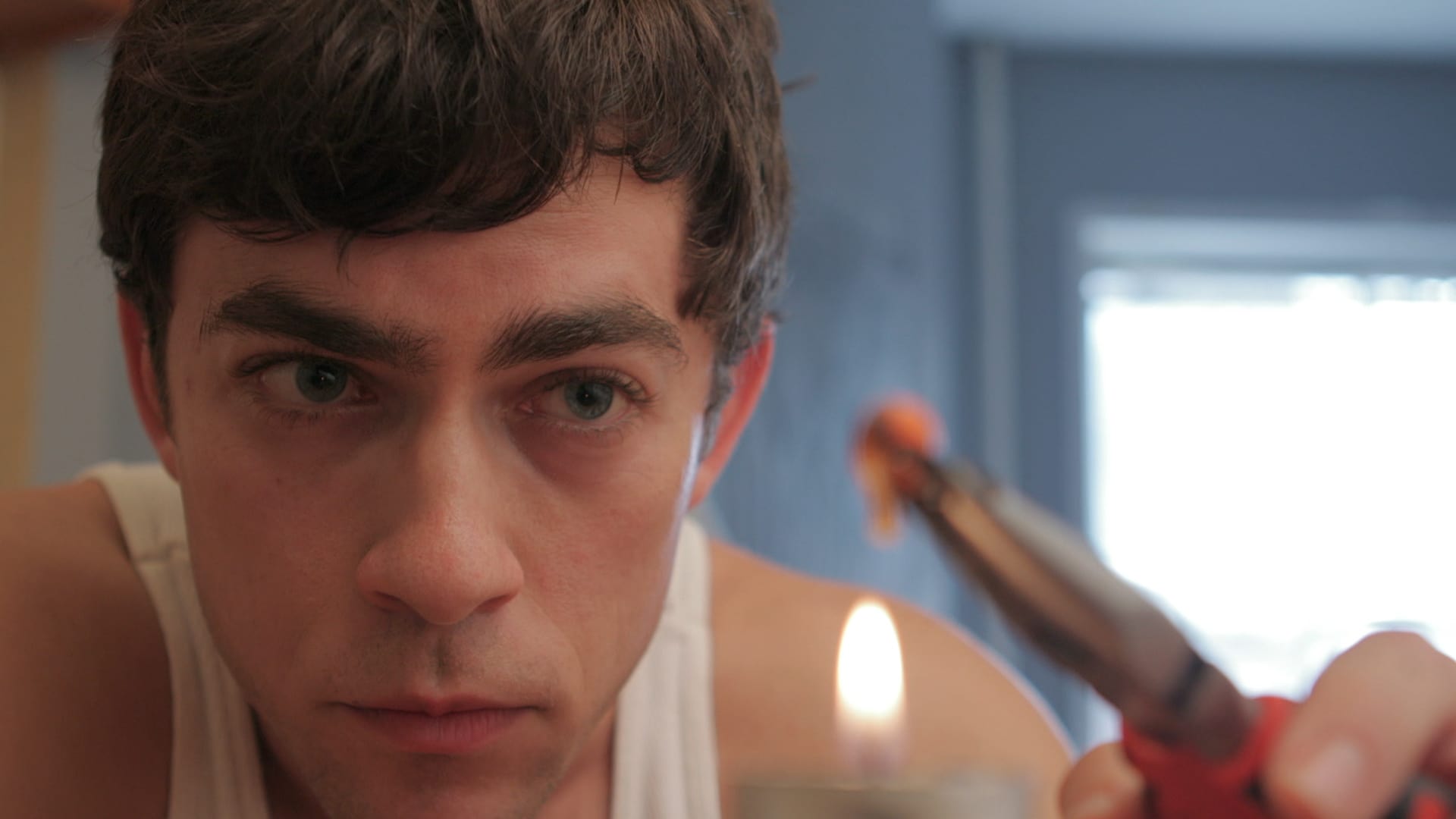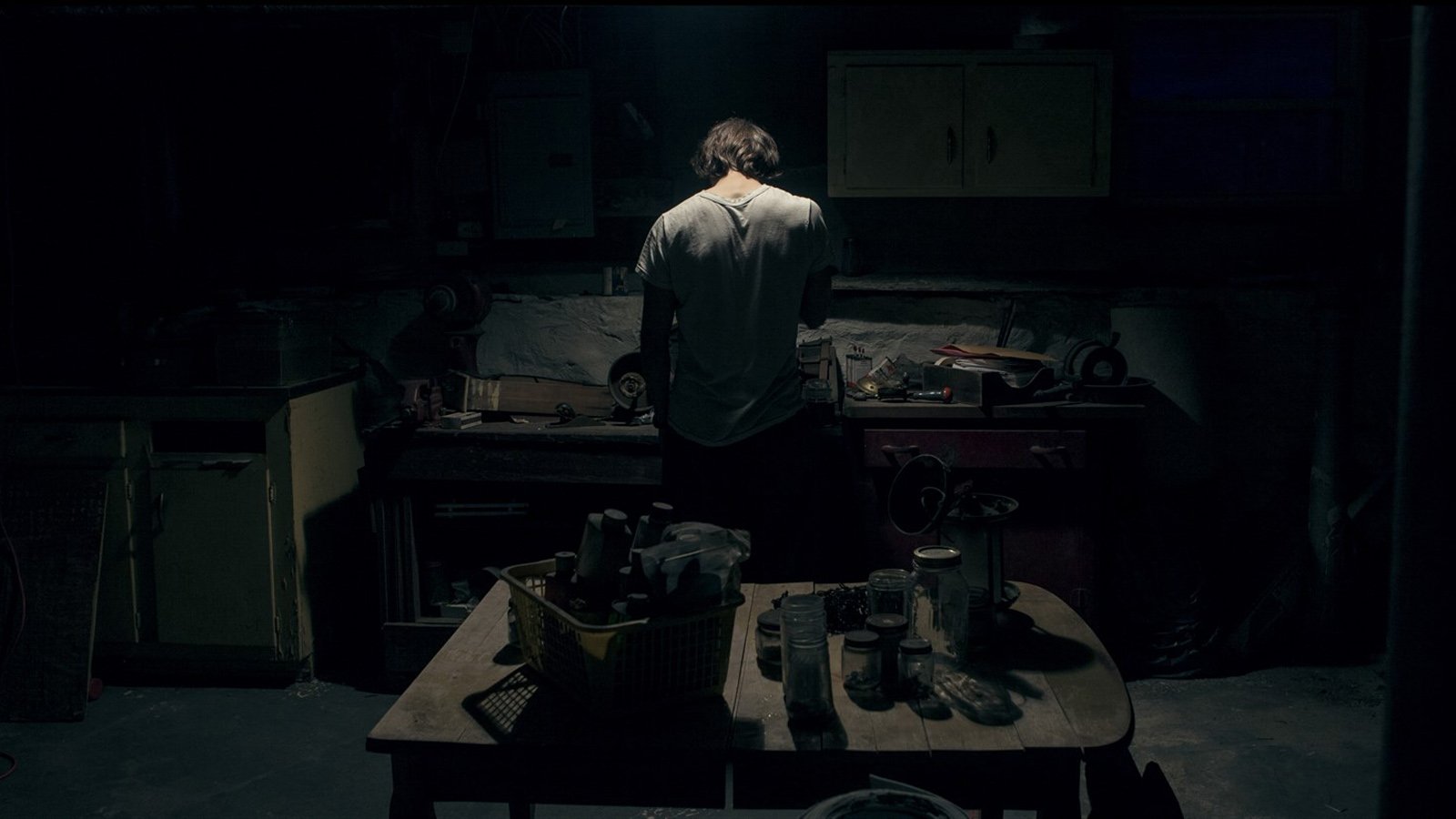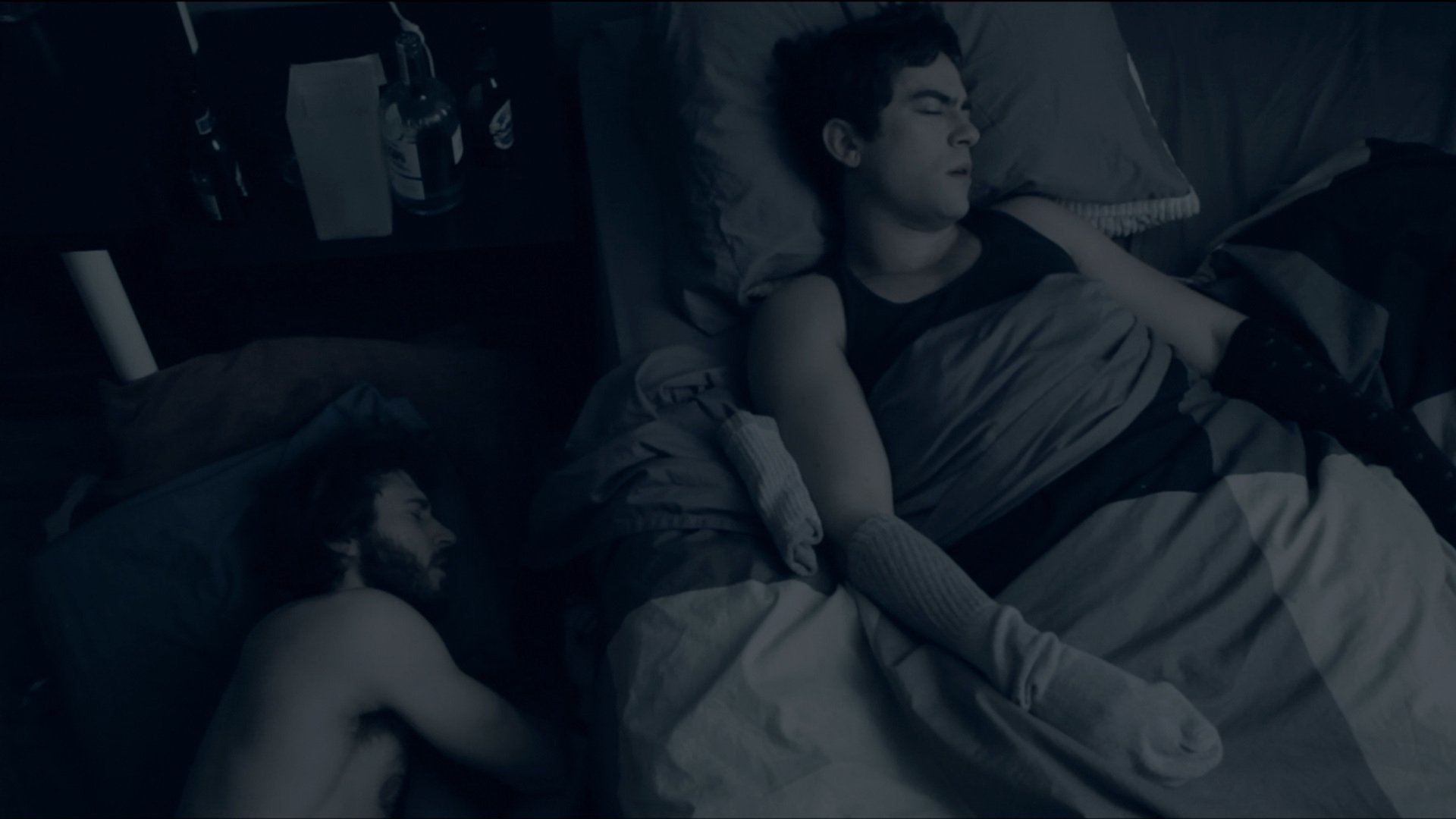
Primal Scream: Schizophrenia in They Look Like People
Primal Scream is a recurring feature where an actual licensed clinical psychologist and horror fan explores the depiction of mental health issues in scary movies. In each installment we’ll examine how mental illnesses and mental health professionals are portrayed in horror cinema, and discuss the extent to which the movies get these things right...or wrong! Along the way you’ll meet crazed killers, their traumatized victims, and the therapists who try to put everyone back together again.
Perry Blackshear's They Look Like People is a horror movie, but probably not the way people expect it to be. In the world of scary movies a man receiving secret messages that he has chosen to stop demons from taking over the world is certainly within the realm of possibility. But They Look Like People goes into a deeper layer of terror than even this scenario presents - the horror of discovering you have Schizophrenia.
The movie begins by highlighting the differences between the adult lives of childhood friends Wyatt & Christian. We see Christian (Evan Dumouchel) on the job, exercising, and listening to self-help audio to help him work up the courage to ask out a woman named Mara (Margaret Ying Drake). In contrast, Wyatt (MacLeod Andrews) is shown having a vague but frightening experience with his sleeping fiancé. He sneaks around in the shadows before conspiring to “accidentally” run into Christian. Once the friends reunite, Wyatt’s oddness continues as he tapes a knife under a table in Christian’s basement while hallucinatory flashbacks show him that his fiancé had been taken over by a demon.
While Christian sleeps, Wyatt experiences the auditory hallucination of a phone call from a man who outlines the delusion that demons are taking over the world by inhabiting peoples’ bodies. The voice tells Wyatt, “If we do not stop them, they will enslave & butcher every good person left on earth.” Paranoid delusions are often egocentric in nature, making the psychotic individual the center of the “plan.” The voice tells Wyatt that Christian is still good and is not yet a demon. This fits a common pattern in which someone with Schizophrenia connects with a person they think is safe, only for this person to later turn out to be part of the delusional plan. Wyatt shows some insight after the “call,” contacting a family friend who is a psychiatrist and asking to move their meeting up so they can see eachother sooner than originally planned. Wyatt is clearly somewhat ambivalent about what he is experiencing, and this kind of insight is typically a positive sign for Schizophrenia prognosis.

The next day Wyatt looks through Christian’s boxes of mementos from their child & teen years. Wyatt experiences a tinnitus-like auditory hallucination when looking at a picture with a note on the back about going off to college - a period in a young person’s life when most initial Schizophrenic breaks happen. In the picture, Wyatt sees that the person next to him has a frighteningly distorted face, perhaps another clue that college is when Wyatt first started exhibiting psychotic symptoms. During another hallucinated phone call the voice tells Wyatt that, “Even before you were one of the blessed you could sense them.” This could be alluding to Wyatt struggling with his mental health for a while before it comes to a head during the events of the film.
When he informally meets with his family’s psychiatrist friend, Wyatt says he doesn’t believe he has Schizophrenia and identifies his friendship with Christian as a long-term relationship that didn’t end up letting him down. While Wyatt identifies his hallucinations as dreams and downplays the severity of his hallucination, he does ask the psychiatrist if medications could help him. The psychiatrist suggests Wyatt make an appointment to come see him in his professional office. (Ethically speaking, this is not a wise move as mental health professionals are required to avoid multiple relationships with patients). However, when the psychiatrist mentions coming to his office Wyatt begins to experience auditory hallucinations that (he believes) indicate the psychiatrist is no longer human and is a demon in disguise. After the meeting he tells Christian that he “went to see a family friend but he wasn’t around anymore,” showing that Wyatt’s psychosis is preventing him from making connections with other people & getting the help he needs.

As Wyatt and Christian rekindle their friendship, Wyatt asks Christian if he believes in “supernatural stuff” and, “If something really scary ever happened would you be on my side?” They goof off in Christian’s apartment playing childhood games, but later as they sleep Wyatt has a dream about a demon coming for Christian. As Wyatt gets closer to him, Christian begins to become entangled in the paranoid delusional system Wyatt is experiencing. Wyatt then receives a hallucinated call from Mara, the woman Christian is dating, further enmeshing Christian’s life into Wyatt’s illness.
When Mara visits Christian, Wyatt goes fully into his delusion by asking Mara about the hallucinated phone call. Mara gets understandably confused & scared, and Wyatt is finally stressed enough to reveal his truth to Christian. Thinking the apartment is bugged, Wyatt writes a note spelling out his demon delusions ending it with, “Trust me please.” Trust is ultimately what will help Wyatt most, although not how he thinks it will. He enlists Christian into his demon fighting mission, and gets the most emotional we have seen him yet. That night Wyatt hears a demon’s voice, describing in gory graphic detail how they will kill him and Christian. Things are coming to a head for Wyatt emotionally.
The next day, meeting Wyatt’s vulnerability with his own, Christian discloses a past suicide attempt and offers to connect Wyatt with his former therapist. They try to make things better, using humor to diffuse the situation and selling Wyatt’s weapons online. But when Wyatt meets with Mara to apologize, he has a graphic visual hallucination of her body breaking apart to show a demon underneath. He can’t pretend or wish this away anymore.

He goes back to Christian who says, “Tell me what to do to help fight them. I don’t believe what you believe but I know you believe it. So just be honest with me and you have to promise me not to kill anyone, ok?” This is a wonderful encapsulation of a therapeutic approach to Schizophrenia. When a clinician lets someone with Schizophrenia know they want to help them, validates the strength of their beliefs, and tries to keep everyone safe, amazing changes can happen. As everyone inevitably becomes consumed in the delusional system, Wyatt begins to believe that Christian is now a demon too. Like a good therapist, Christian goes into the depths of Wyatt’s pain with him as he tries to help Wyatt see the reality that he is still himself. As in therapy it is the relationship itself that leads to healing.
When Wyatt is finally able to see Christian is human, he laughs and cries in a way that shows that while one awful option has been proven false, another is shown to be true. They Look Like People plays with the horror of either possibility to the end. Either there are demons trying to take over the world, or Wyatt has Schizophrenia. In either case it’s hell happening to the world, or hell happening to one person.

